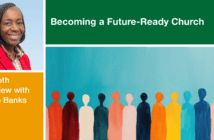I was intrigued recently to read of conversations going in the Church of England. Stephen Cottrell, the Bishop of Reading, received considerable media attention when he said that the Anglican church must shed its “Marks & Spencer” middle class image to attract the “Asda and Aldi” generation of worshipers. In the U.S. context, one can fairly easily substitute for these names stores that tend to appeal to more middle and upper middle class consumers and those frequented predominantly by people with fewer financial resources.
In the United Kingdom and in the United States, churches are often associated with the well-to-do by those who are poorer or see themselves outside the social center of their communities.
The bishop contends that Jesus would have been just as likely to shop at the budget stores. Such “Jesus would do …” statements normally serve merely to polarize thinking; but the bishop is correct that in the United Kingdom and in the United States, churches are often associated with the well-to-do by those who are poorer or see themselves outside the social center of their communities. Bishop Cottrell says he continues to meet people who think that they have to be “suited and booted to be a person who goes to church” — said as only the British can!
These discussions are occurring as the Church of England is in the midst of a major “Back to Church on Sunday” campaign to turn around the continuing loss of worshippers. The campaign has highlighted a divide that continues in many communities between churches being seen as places for the middle class at the same time the church is trying to attract growing numbers of younger, poorer, and more diverse neighbors.
Dominic Walker, Bishop of Monmouth, in agreeing with Bishop Cottrell, says, “We need to get the message across that we welcome the rich and poor, the young and old, black and white, the healthy and sick, the happy and sad.” He laments how frustrating the divide is and wonders how it came to this — where we have become known as the place for the well-to-do when in our heart of hearts we know that Jesus would just as likely (or, we might add, more likely) be with the less well off.
Maybe church leaders on both sides of the Atlantic need to heed the advice of the Scottish poet Robert Burns in learning “to see ourselves as others see us.” That could be an important first step in realizing that, as open and welcoming as some find our churches to be, there are many whose images of church have been shaped by experiences that make them much more wary of church as a place for people “like them.”






